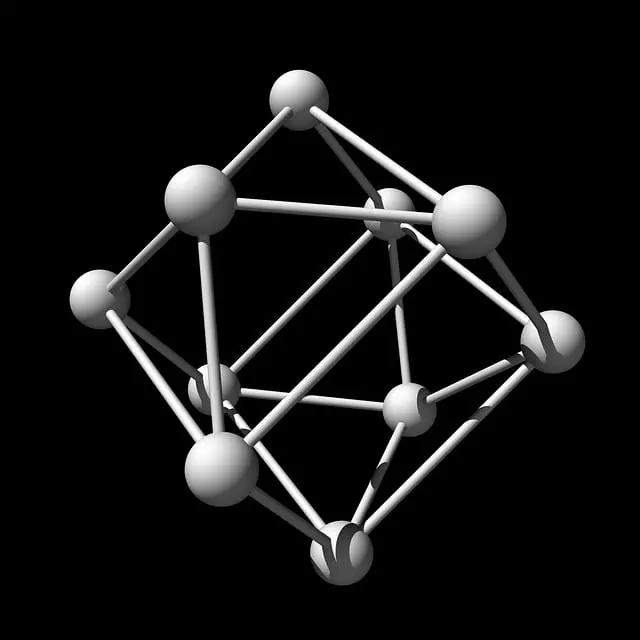Recent research suggests that kratom, specifically its alkaloids like mitragynine and 7-hydroxymitragynine, may modulate prolactin levels which are essential for muscle repair post-exercise. Prolactin's role in recovery makes kratom a potential aid for athletes seeking to enhance their recovery times and performance. However, the exact effects of different kratom strains and dosages on prolactin during training recovery are complex and still need thorough investigation. The influence of kratom on prolactin levels also potentially improves sleep quality, another critical factor in athletic recovery. It's important for individuals to consult healthcare professionals before incorporating kratom into their routines, considering its legality and potency differences in products, as well as individual responses and sensitivities. Proper dosage and timing are crucial for maximizing benefits while ensuring safety and efficacy in promoting muscle repair and overall well-being through the modulation of prolactin levels.
Kratom, a natural alkaloid derived from the Mitragyna speciosa tree, has garnered attention within athletic circles for its potential impact on training recovery. The intricate relationship between kratom and prolactin levels, a hormone pivotal to muscle repair and recovery, is poised to unveil new dimensions in optimizing athletic performance. This article delves into the science behind how kratom can be integrated into a post-workout regimen to modulate prolactin, offering insights for those seeking enhanced recovery. Explore the synergy between these elements and their role in the holistic approach to muscle recovery and athletic training.
- Unraveling the Connection Between Kratom and Prolactin Levels in Training Recovery
- Optimizing Athletic Performance and Muscle Recovery with Kratom's Influence on Prolactin
- Integrating Kratom into a Post-Workout Routine to Modulate Prolactin for Enhanced Recovery
Unraveling the Connection Between Kratom and Prolactin Levels in Training Recovery

Studies have begun to shed light on the complex interplay between kratom and prolactin levels in individuals undergoing training recovery. Kratom, derived from the Mitragyna speciosa tree, contains alkaloids such as mitragynine and 7-hydroxymitragynine, which have been observed to influence various bodily functions, including hormonal balance. Prolactin, a hormone pivotal in reproductive health and immune function, has a significant role in recovery processes post-exercise by promoting muscle repair and regeneration.
Research suggests that kratom’s interaction with prolactin may be multifaceted. For instance, certain strains of kratom are believed to stimulate prolactic secretion, potentially enhancing the body’s natural recovery mechanisms. This stimulation could lead to a more efficient regeneration of muscle tissues and a quicker return to peak performance levels for athletes and those engaging in rigorous training. However, the exact mechanisms behind this relationship are not yet fully understood, and further research is necessary to clarify how different kratom dosages and strains affect prolactin levels during training recovery. It is crucial for individuals using kratom as part of their recovery regimen to monitor their prolactin levels and consult with healthcare professionals to ensure safe and effective use.
Optimizing Athletic Performance and Muscle Recovery with Kratom's Influence on Prolactin

Kratom, a tropical evergreen tree native to Southeast Asia, has garnered attention in the realm of athletic performance and muscle recovery due to its potential interactions with various physiological processes. One such interaction involves prolactin, a hormone that plays a significant role in the body’s repair mechanisms after intense physical activity. Studies have suggested that kratom may influence prolactin levels, which could potentially enhance the healing of muscle tissues and aid in post-exercise recovery. This effect is believed to be particularly beneficial for athletes seeking to optimize their performance by reducing recovery time between training sessions. The balance of prolactin, facilitated by kratom’s alkaloid profile, may promote a more efficient repair response, leading to quicker muscle recuperation and potentially lessening the risk of overtraining or injury. Athletes incorporating kratom into their regimen should be cautious, however, as the precise mechanisms and optimal dosages remain subjects of ongoing research, and individual responses can vary significantly. Therefore, it is crucial for athletes to consult with healthcare professionals before integrating kratom into their training recovery protocols to ensure safe and effective use.
Furthermore, the influence of kratom on prolactin levels may also contribute to improved sleep quality, another critical factor in athletic performance and muscle recovery. High prolactin levels are often associated with increased relaxation and sleepiness, which can be advantageous for athletes who prioritize restorative sleep as part of their recovery strategy. Ensuring adequate sleep is crucial for the body’s natural repair processes to take place, and kratom may offer a supportive role in this context. However, it is important to note that the effects of kratom can be complex and dose-dependent, with different strains and alkaloid concentrations yielding varied outcomes. As such, individualized approaches tailored to each athlete’s unique needs and circumstances are essential when considering the use of kratom for enhanced recovery and performance.
Integrating Kratom into a Post-Workout Routine to Modulate Prolactin for Enhanced Recovery

Integrating Kratom into a post-workout routine can be a strategic approach to modulate prolactin levels for enhanced recovery. Kratom, derived from the leaves of Mitragyna speciosa, contains alkaloids that may interact with opioid receptors in the body, potentially influencing hormonal responses. Prolactin, a hormone associated with recovery and repair processes post-exercise, can be positively affected by Kratom’s alkaloid profile, particularly those such as 7-hydroxymitragynine. By carefully selecting Kratom strains that are known for their balancing effects, athletes and fitness enthusiasts may use this natural substance to support their recovery regimen. It is important to note the individual’s sensitivity to Kratom and to consult with a healthcare provider before incorporating it into any routine, especially considering the varying legality and potency of Kratom products on the market. When used responsibly and in accordance with professional guidance, Kratom may play a role in optimizing post-workout recovery through its potential influence on prolactin levels, thus contributing to muscle repair, immune system support, and overall well-being. Users should be mindful of dosage and timing, as these factors can significantly impact the efficacy and safety of Kratom’s integration into their workout recovery routine.
In conclusion, the interplay between kratom and prolactin levels presents a promising avenue for optimizing training recovery in athletes. The research indicates that kratom’s influence on prolactin can significantly contribute to both athletic performance enhancement and accelerated muscle recovery. By carefully integrating kratom into a post-workout regimen, individuals may modulate prolactin levels to support their recovery processes effectively. Further studies are warranted to fully elucidate the mechanisms at play and to establish optimal dosing and usage guidelines for this purpose. Nonetheless, the potential of kratom in promoting recovery after intense physical exertion is a noteworthy area of exploration within sports science and holistic health practices.






